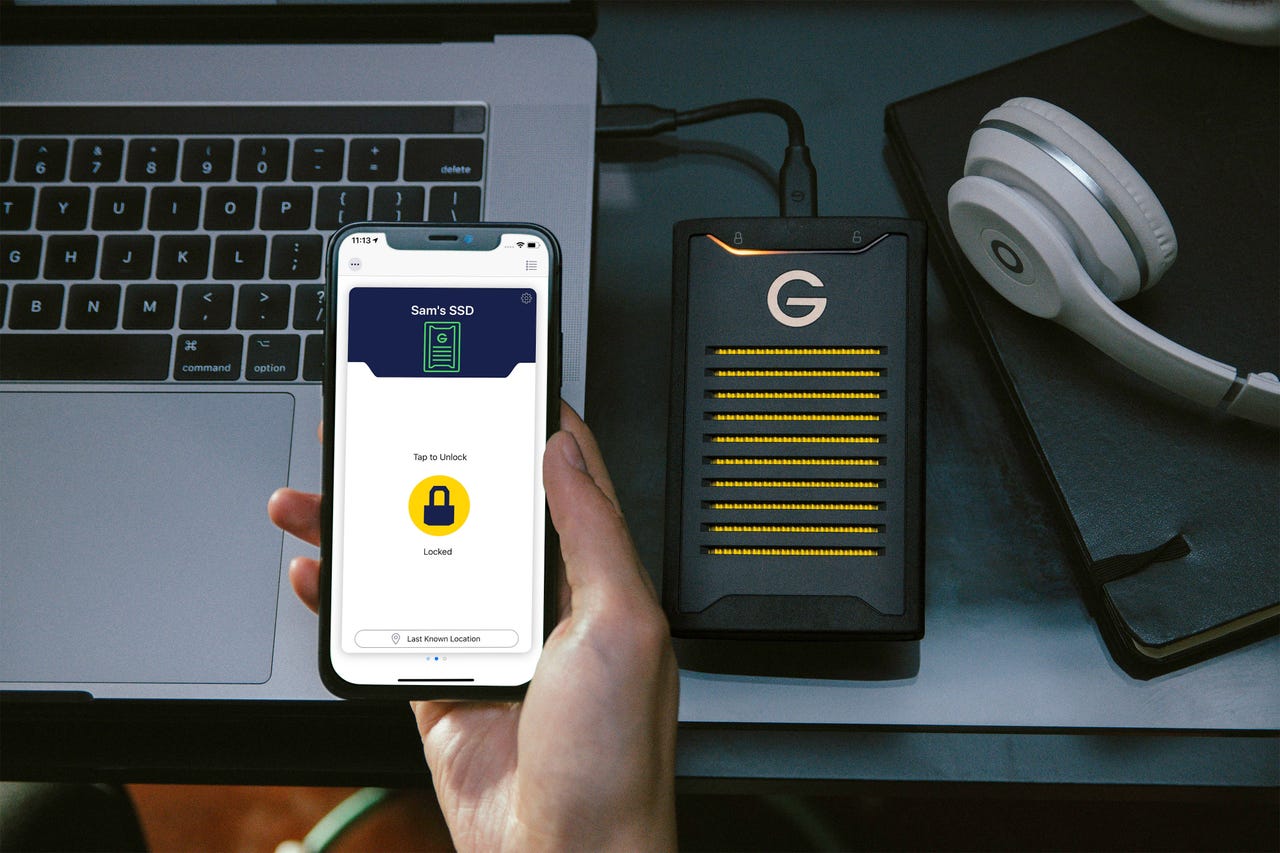Western Digital rolls out high-security SSD for the entertainment industry


Western Digital on Thursday rolled out a new personal storage device, the G-Technology ArmorLock, designed for professionals that need highly-secure content storage that's also high performance -- and also easy to use. The ArmorLock encrypted NVMe SSD is the first product to leverage Western Digital's new ArmorLock Security Platform, and it's targeted at the media and entertainment industry.
A secure means of storing and sharing content is critical for the entertainment industry, which has suffered its fair share of leaked films and stolen content. At the same time, content editors and producers are looking for ways to share content that won't interrupt their workflows, said Christina Garza, senior manager of G-Technology Global Product Marketing for Western Digital.
"We thought there was a better way to deliver encrypted storage that's really easy to use and that people actually want to engage with," Garza told ZDNet. "And we're doing it in a way that won't slow you down. We want to make sure the security technology within this doesn't come at a compromise of speed."
The ArmorLock device offers 2 TB of storage and delivers up to 1000 MB/s read and write speeds via a SuperSpeed USB 10Gbps port. It features high-grade, 256-bit AES-XTS hardware encryption, and it relies on password-less authentication and key exchange technologies.
The device is easy to set up and unlock via the ArmorLock app, which is now available for the Mac and iPhones. Android and Windows versions of the app are on the way, Western Digital says. Bringing the app to PCs will be critical for the entertainment industry, Garza said, which often doesn't allow smartphones on set.
Users unlock the storage device by the same means with which they unlock their phone or Mac, whether that's using facial recognition, a fingerprint, or a passcode. Rather than rely on a unique password, the ArmorLock relies on "zero knowledge" public key management for security. In practice, that means if the device is lost or stolen, someone would also need access to your phone or computer as well before they could even begin hacking it. On top of that, Western Digital developed open source technology to mitigate side-channel attacks.
The app connects to the drive through Bluetooth. If you're using the app on an iPhone, you can still use the drive with a Windows computer. To overcome Bluetooth vulnerabilities, Western Digital developed its own secure communication mechanism, which creates a connection experience similar to pairing Apple Air Pods with an iPhone -- there's no manual pairing involved. Western Digital plans to open source much of the technology behind this feature.
Western Digital can push firmware updates to the ArmorLock via the app. It also offers another level of security by sandboxing the applications, which are delivered through platform-native app stores.
The app is also used to manage devices. Fleet managers can use the app to determine who has access to the devices. When you need to ship a device to another person in a different physical location, you can communicate with them through a messaging platform or email service to provide them with authorization to access the stored content.
The app can also give you the last known location at which an ArmorLock device was used. There's no GPS tracker on the device -- the app utilizes your phone or computer to determine that information. Users have the option of turning off this feature.
Once a user is ready to wipe his device, it can be securely erased and reformatted.
In terms of the hardware itself, the ArmorLock is designed to be very rugged. It offers IP67 dust and water resistance, up to 3 meters of drop protection and 1000 lb crush resistance.
The physical design of the AmorLock also contributes to its ability to deliver sustained speeds. It uses aluminum to pull heat away from the SSD to eliminate throttling. "If you're transferring a terabyte of data and it takes six to seven minutes, it's going to transfer across at the same speeds of 1,000 MB/s," Garza said.
While a great deal of content sharing and collaboration is moving to the cloud, Garza said the ArmorLock was designed to deliver the same ease of use and security that enterprise users would expect from the cloud.
"We want to make sure we're complementing what corporations and even individuals have done to maintain cloud security, network security," she said. "We wanted to bring that down to the personal storage device level -- to be sure when you're traveling with your drive, when it's being shipped during collaboration, that we're delivering the highest levels of security."